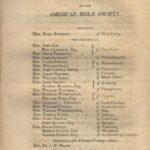 The Bible has often been described as the book that built America. As President Franklin Roosevelt affirmed:
The Bible has often been described as the book that built America. As President Franklin Roosevelt affirmed:
We cannot read the history of our rise and development as a Nation without reckoning with the place the Bible has occupied in shaping the advances of the Republic. 1
Significantly, it was many of America’s Founding Fathers who worked actively to spread the Bible and its influence across America.
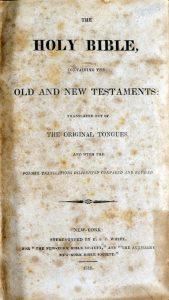 For example, Benjamin Rush (a signer of the Declaration of Independence) in 1809 helped establish the first Bible Society in America. 2 By 1816, 121 more Bible societies had been started across the nation, many of them with the help of key Founding Fathers. 3(Information relating to early Bible societies is available in the commentary for Psalm 119 in The Founders Bible.)
For example, Benjamin Rush (a signer of the Declaration of Independence) in 1809 helped establish the first Bible Society in America. 2 By 1816, 121 more Bible societies had been started across the nation, many of them with the help of key Founding Fathers. 3(Information relating to early Bible societies is available in the commentary for Psalm 119 in The Founders Bible.)
This was particularly true with the American Bible Society – the first national Bible society in America. WallBuilders vast collection of original documents includes the original constitution of the Society as well as the first Bible printed by them. The list of the first officers of the Society is a who’s who of American political leaders at the time, and included signers of the U. S. Constitution, revolutionary generals, U. S. Supreme Court Justices, U. S. Attorney General, U. S. Secretary of the Treasury, state governors, and others. 4
For more information on the American Bible Society see David Barton’s short video about this remarkable organization.
Endnotes
1 Franklin D. Roosevelt, “Statement on the Four Hundredth Anniversary of the Printing of the English Bible,” The American Presidency Project, October 6, 1935.
2 The First Report of the Bible Society Established at Philadelphia; Read Before the Society at Their Annual Meeting, May 1, 1809 (Philadelphia: Fry and Kammerer, 1809), 2.
3 The Eighth Report of the Bible Society of Philadelphia; Read Before the Society, May 1, 1816 (Philadelphia: Will Fry, 1816), pp. 44-52.
4 Constitution of the American Bible Society, Formed by a Convention of Delegates Held in the City of New-York, May, 1816 (New York: G. F. Hopkins, 1816), 7.

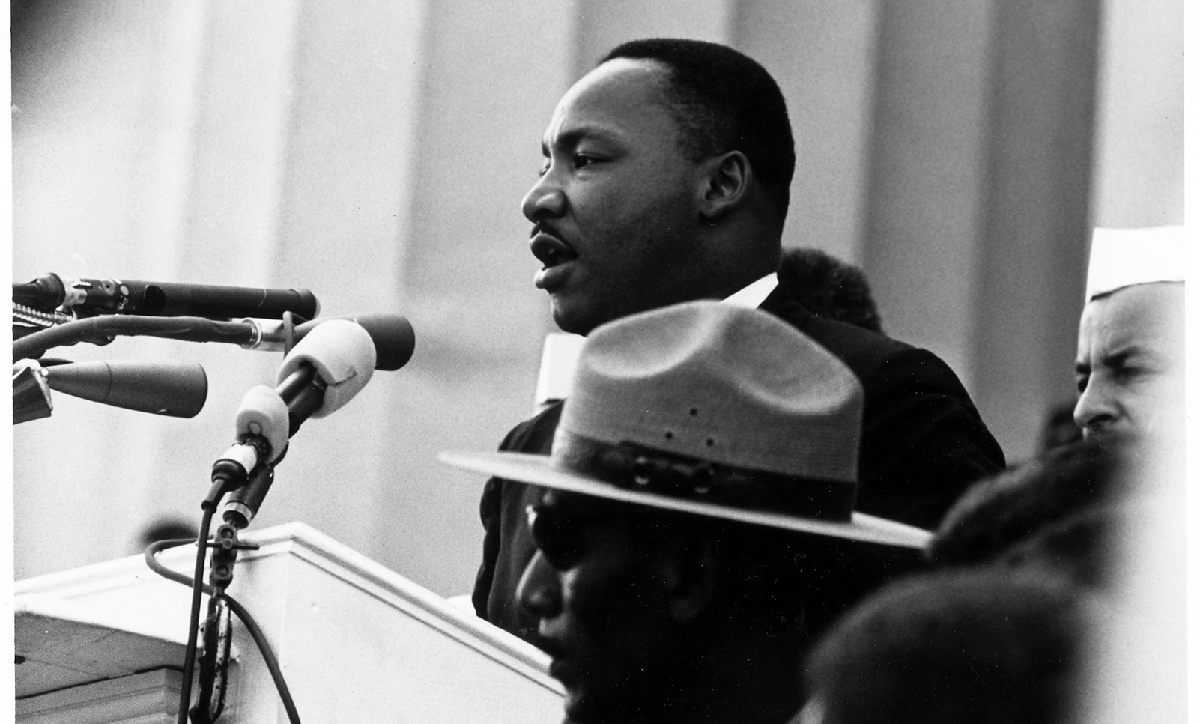
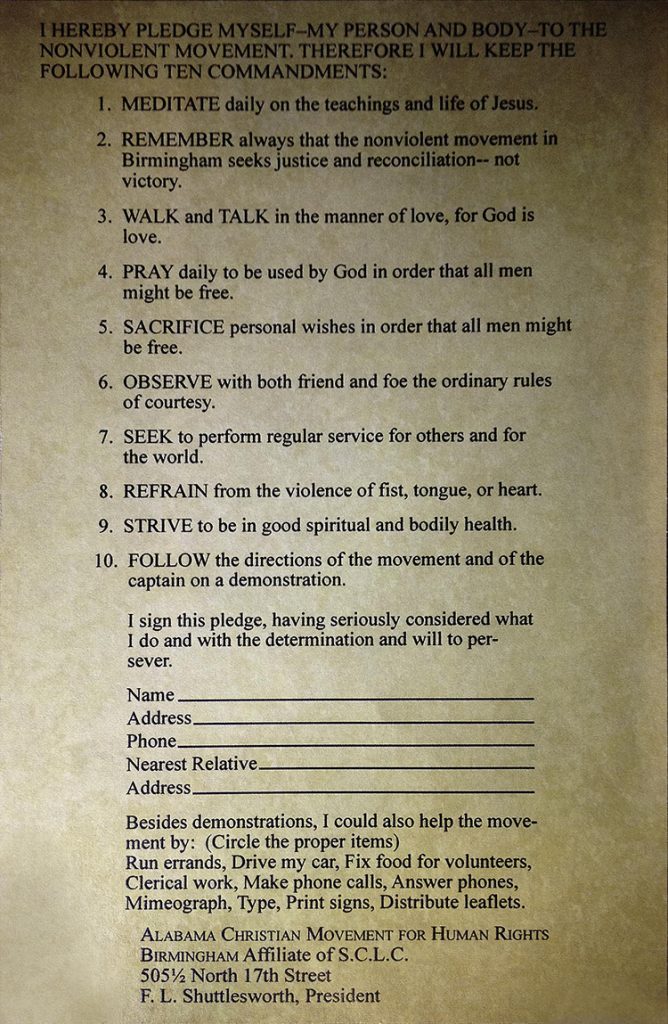

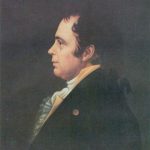 Fort McHenry had been named for Constitution signer James McHenry, who was Secretary of War under both President George Washington and President John Adams.
Fort McHenry had been named for Constitution signer James McHenry, who was Secretary of War under both President George Washington and President John Adams. 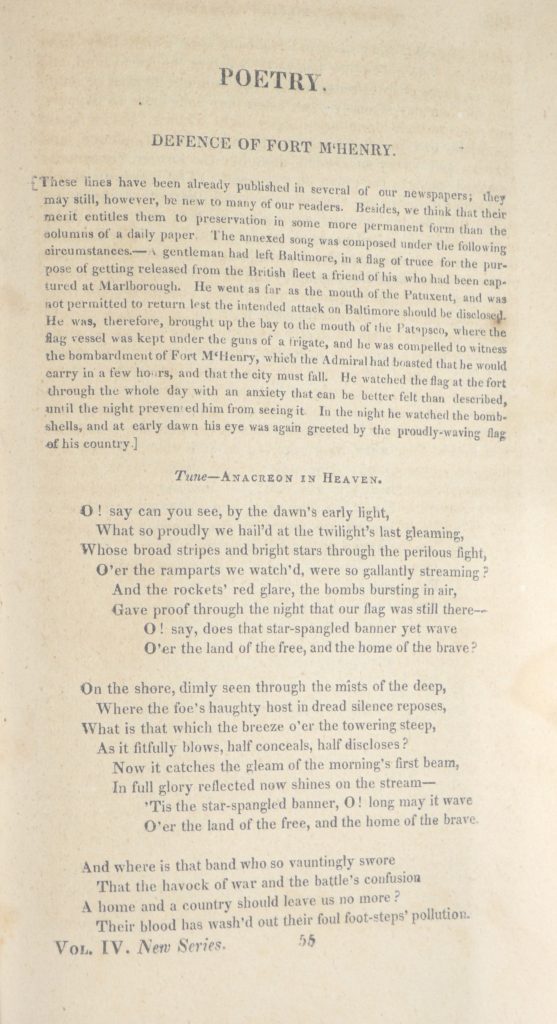
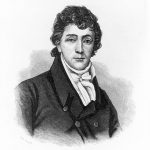

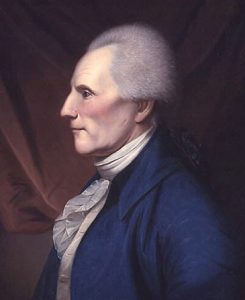
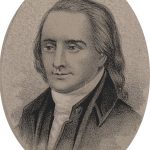 Richard Henry Lee was part of a large family that was something of a political dynasty for the better part of two centuries. His father, Thomas, served as
Richard Henry Lee was part of a large family that was something of a political dynasty for the better part of two centuries. His father, Thomas, served as 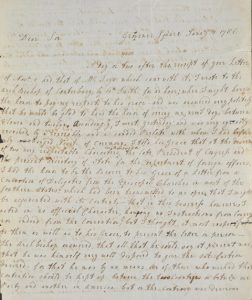 After the American Revolution ended, and while serving as President of the Continental Congress in 1784-1785, Richard
After the American Revolution ended, and while serving as President of the Continental Congress in 1784-1785, Richard 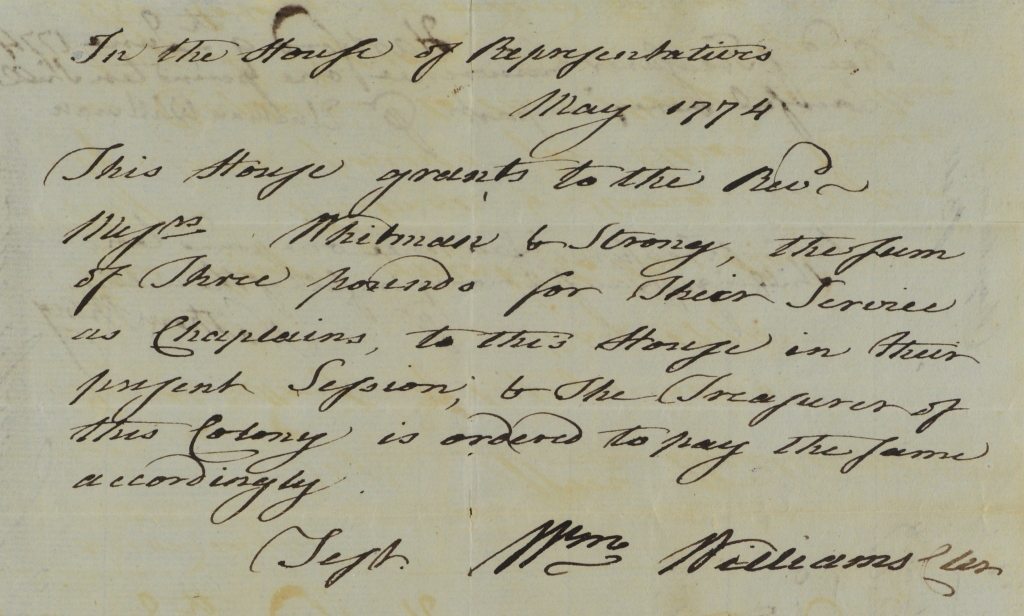

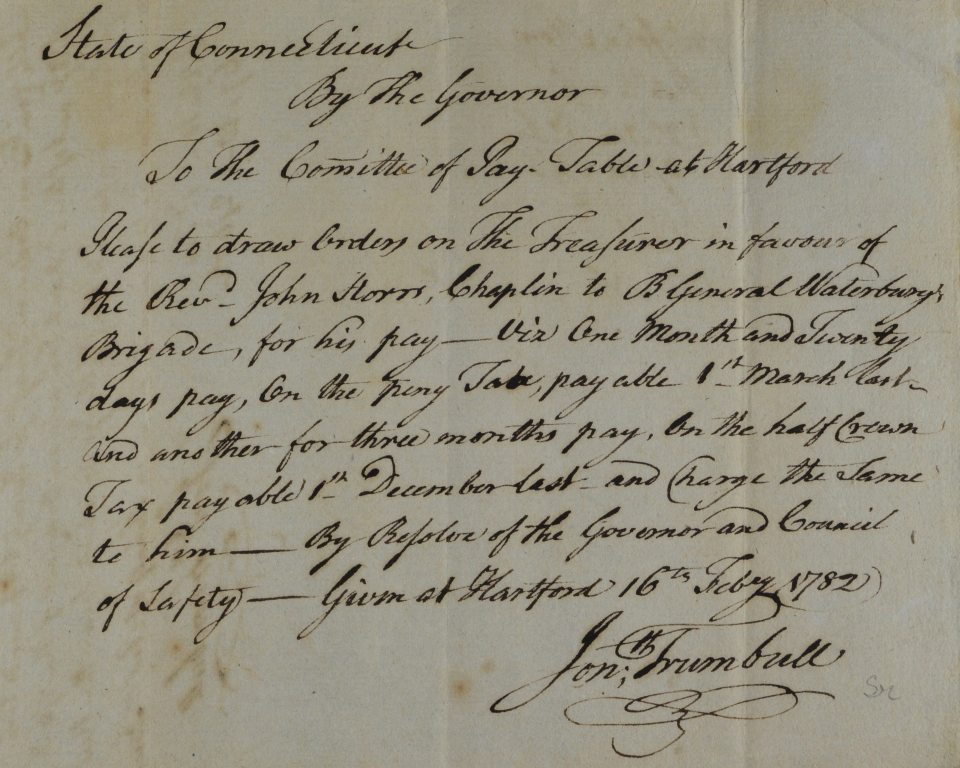
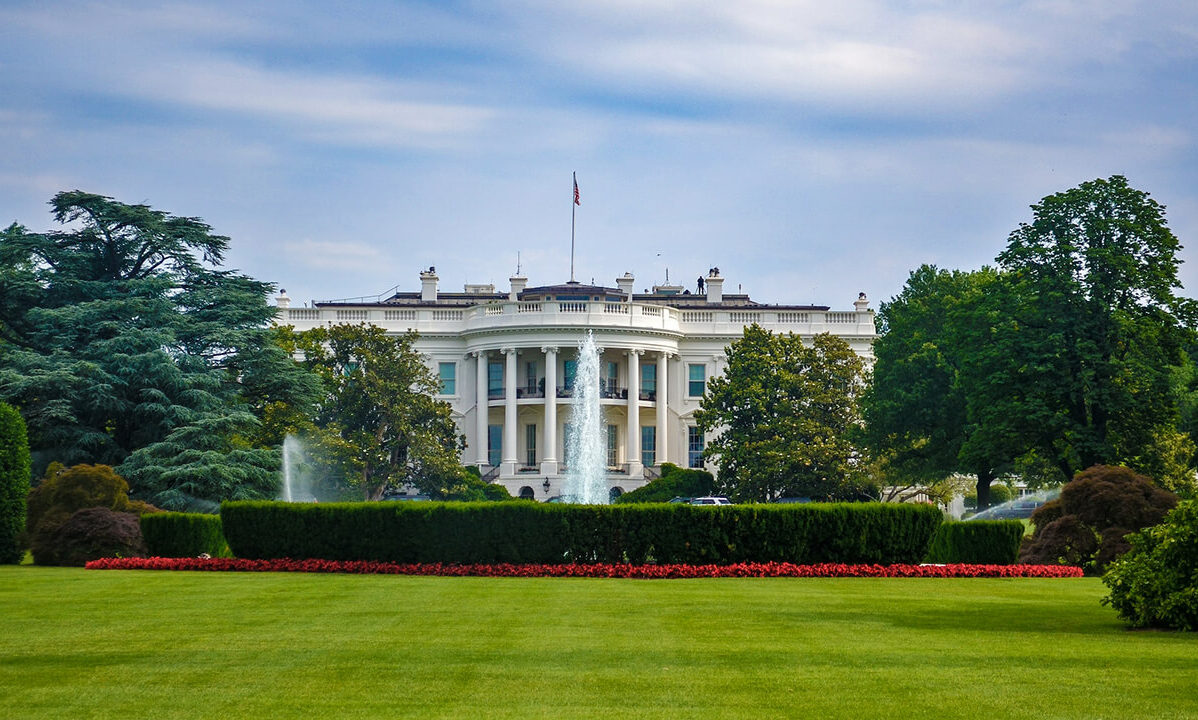
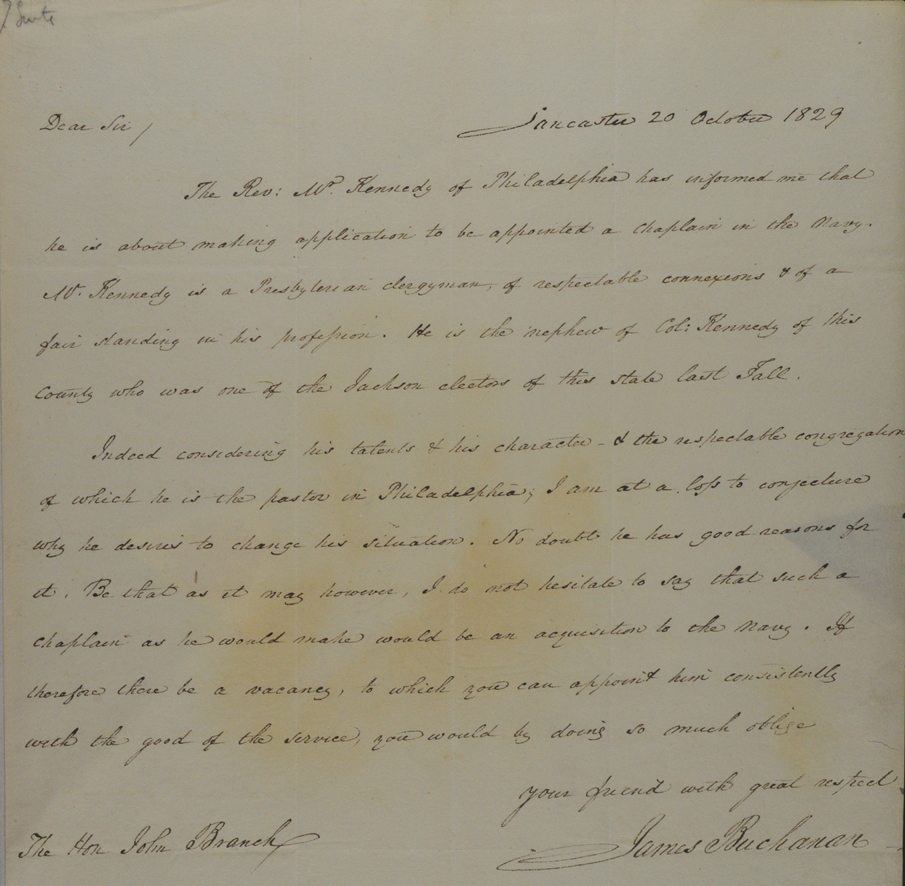

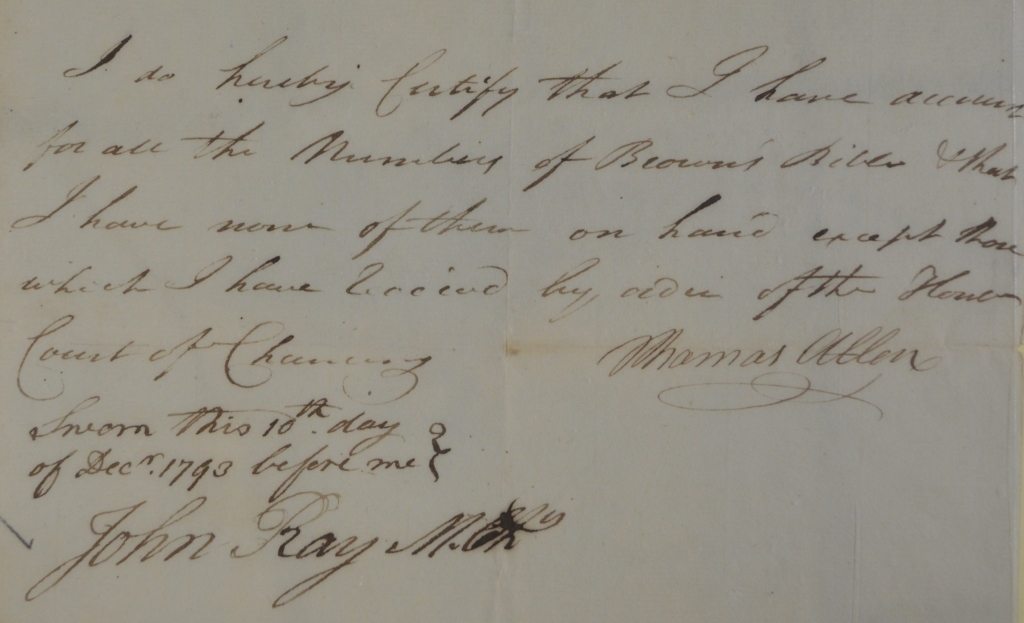
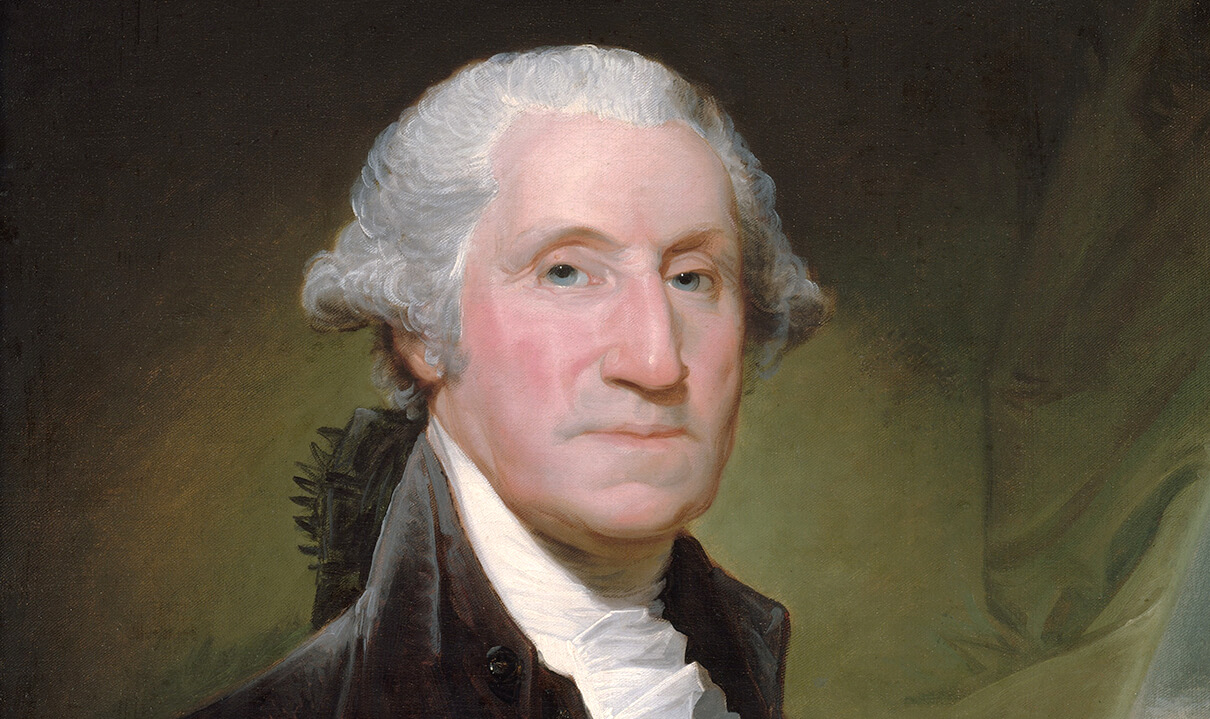
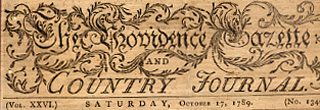
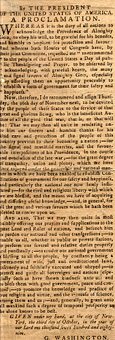 Whereas it is the duty of all nations to acknowledge the providence of Almighty God, to obey His will, to be grateful for His benefits, and humbly to implore His protection and favor; and whereas both Houses of Congress have, by their joint committee, requested me “to recommend to the people of the United States a day of public thanksgiving and prayer, to be observed by acknowledging with grateful hearts the many and signal favors of Almighty God, especially by affording them an opportunity peaceably to establish a form of government for their safety and happiness.”
Whereas it is the duty of all nations to acknowledge the providence of Almighty God, to obey His will, to be grateful for His benefits, and humbly to implore His protection and favor; and whereas both Houses of Congress have, by their joint committee, requested me “to recommend to the people of the United States a day of public thanksgiving and prayer, to be observed by acknowledging with grateful hearts the many and signal favors of Almighty God, especially by affording them an opportunity peaceably to establish a form of government for their safety and happiness.”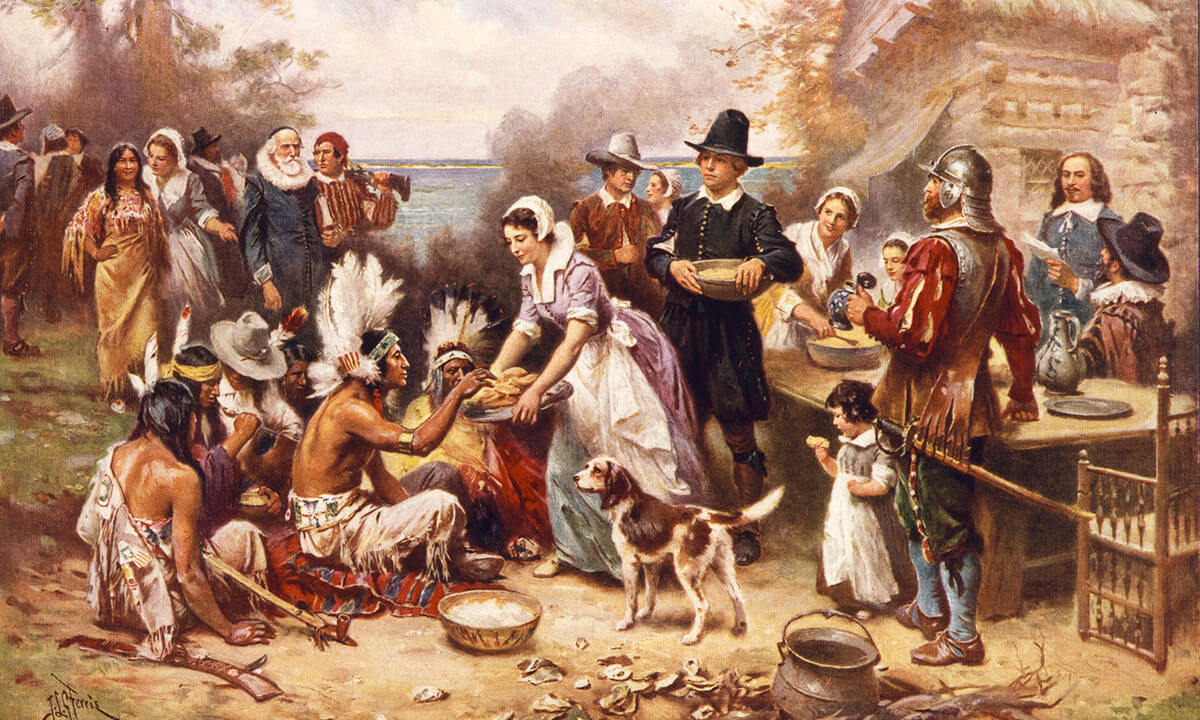
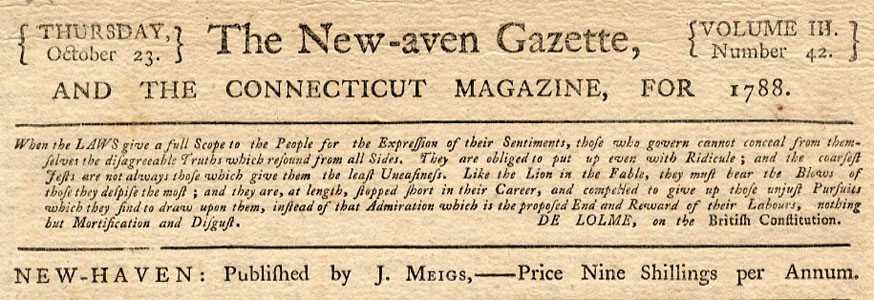

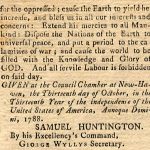 Given at the Council Chamber at New-Haven, the Thirteenth day of October, in the Thirteenth Year of the independence of the United States of America, Annoque Domini, 1788.
Given at the Council Chamber at New-Haven, the Thirteenth day of October, in the Thirteenth Year of the independence of the United States of America, Annoque Domini, 1788.